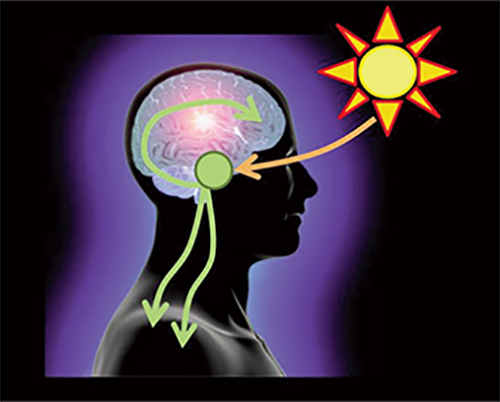![New research findings show that changing the circadian clock in mouse liver can alter how the body responds to diet and also change the microbes living in the digestive tract. [NIH]](https://genengnews.com/wp-content/uploads/2018/08/voigt014725181461-1.png)
New research findings show that changing the circadian clock in mouse liver can alter how the body responds to diet and also change the microbes living in the digestive tract. [NIH]
The body’s internal biological clock is typically set in response to external cues, such as sunlight and temperature. Changes in this temporal schedule can affect a vast array of physiological systems, leading to the manifestation of observable physical changes. Yet, researchers have long been curious whether the circadian clock has an overt effect on the gut microbiota—which is never exposed to light and generally only minor fluctuations in temperature.
Now, it would seem that scientists have stumbled upon an interesting discovery as investigators at the Baylor College of Medicine report new findings that changing the circadian clock in mouse liver can alter how the body responds to diet and also change the microbes living in the digestive tract. Results from the new study—published today in the American Journal of Obstetrics and Gynecology in an article entitled “Conditional Postnatal Deletion of the Neonatal Murine Hepatic Circadian Gene, Npas2, Alters the Gut Microbiome following Restricted Feeding”—show for the first time that a liver gene in mice has the ability to link the circadian system, the microbiome, and the mouse metabolism under dietary restrictions. What is surprising is that it does so in a sex-specific fashion.
“Organisms can change how their bodies process food in different ways,” explained lead study author Derek O'Neil, Ph.D., a postdoctoral fellow in obstetrics and gynecology at Baylor. “Here, we studied two of those strategies. One involves the circadian clock, the internal mechanism that helps orchestrate body activities such as going to sleep or when to eat. Another aspect that can affect how we metabolize our food is the microbiome, the bacteria that live in the body.”
While previous work has shown that the circadian clock and the microbiome can affect metabolism, this new study goes a step further by exploring whether changing the circadian clock would affect the microbiome. To investigate that connection, the research team genetically engineered mice to lack the only liver gene involved in circadian rhythm—Npas2. In a test called restricted feeding, normal feeding hours were disrupted. Instead of having access to unrestricted amounts of food for 12 hours at night (the normal feeding time for mice), the mice had access to food for 4 hours during the day.
Two groups of mice were subjected to the restricted feeding test for 17 days—the mice lacking the Npas2 gene and wild-type mice. Before, during, and after the test, investigators took stool samples where they determined the type of microbes present, in addition to measuring how much food the animals ate and their weight.
Interestingly, the Baylor team found that altering the circadian clock in the liver results in changes within the gut microbiome—the mice lacking the Npas2 gene had microbial communities in their stools that were different than those in normal mice. Additionally, even though both groups of mice ate about the same amount of nutritionally balanced food and lost weight during the restricted feeding test, the mice lacking the Nasp2 gene lost less weight than the normal mice.
“Lacking a gene in the liver that drives the circadian clock was sufficient to not only change the resiliency of these male mice to weight loss during restricted feeding but also to change their gut microbiome,” noted senior study investigator Kjersti Aagaard, M.D., Ph.D., professor of obstetrics and gynecology at Baylor. “This is the first scientific, mechanistic study that shows clear evidence of a complex interplay between the host circadian system, the microbiome, and the host metabolism when under dietary stress.”
The researchers hypothesize that their findings could lead to more studies aimed at better understanding the intricate interactions between major disturbances of the circadian clock for both mother and child during neonatal life (when newborns are still learning day from night), the microbiome, and preserving the mother's weight and metabolism. Moreover, the new study could have significant clinical implications for disease management as well.
“We speculate that our findings may lead to solutions for people who are resistant to losing weight with restricted feeding as well as the opposite situation,” Dr. Aagaard concluded. “If we manipulated the microbiome, could we see lesser or more weight loss by just changing the time of feeding? Our study could also be applied to situations in which we don't want to see weight loss, such as cancer patients receiving chemotherapy or during times in life when sleep patterns are turned upside down.”







